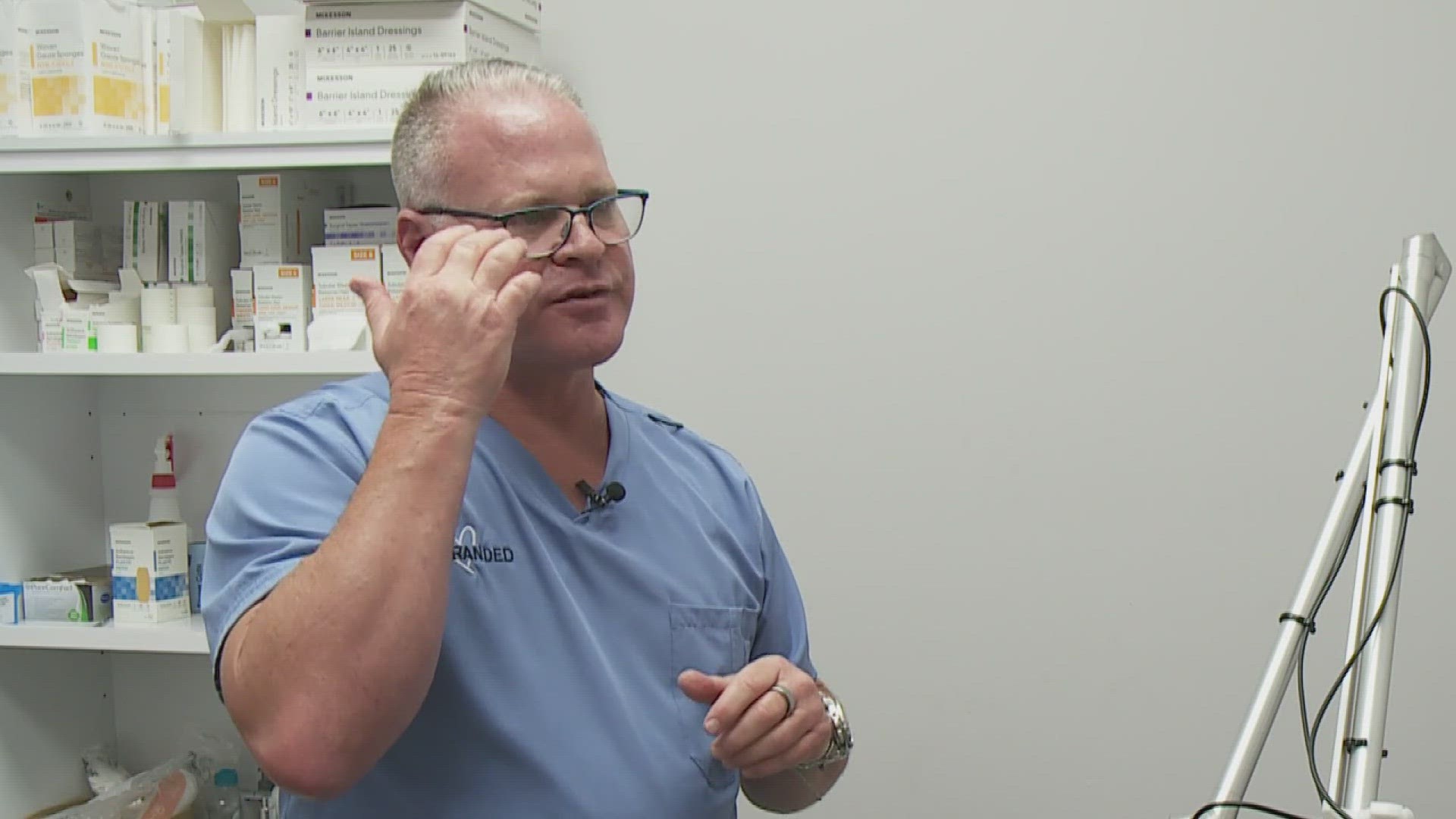METAIRIE, La. — Survivors of sex trafficking can carry emotional and physical scars for the rest of their lives. Now a clinic in Metairie is erasing some of the physical reminders of the abuse they endured.
It all started with new technology and the desire for one man to help people who were forced into that lifestyle, and change their lives.
People who have survived sex trafficking go through mental and physical therapy to heal. And now a local man is healing another reminder of what happened, and the survivors are calling it a path towards their freedom.
“Our bodies were used. Our bodies were branded. We had no say so over our bodies. We were told what to do, what to wear, where to go, what to, you know, we weren't allowed to think for ourselves, or have choices. Like, we weren't even allowed to use the bathroom,” said Michelle, who only wanted to use her first name.
Michelle is a sex trafficking survivor. That was her life from the age of 16 to 24. A federal law enforcement sting operation is how she was finally freed, by being arrested, but that world left her not only with the physical and mental scars, but tattoos, some of them large. Among them was of the name of the person controlling her and the money.
“I have symbols and things like that. I had my own name on my arm right here, because if anyone ever found my body it would be a way to identify me,” Michelle said.
Then a year ago she met Scott Vaughan. He's the owner of the Metairie clinic First Down Healthcare and Aesthetics. And the former third generation professional football referee, decided he wanted to use his clinic to change lives.
“A lot of them started being sex trafficked as young as the age of 3, 4, 5 years old. And usually it's by a family member. It's still hard for me to wrap my mind around,” Scott Vaughan, owner and CEO of the clinic said.
So, he started a nonprofit called Unbranded, and used the new technology of a laser to remove tattoos from human trafficking survivors, free.
“One in two are branded by their pimp, or their trafficker, with a certain tattoo that shows ownership. It shows what pimp they belong to, and what pimp owns that property, meaning a human being,” he said.
It removes all color ink, leaving no scars, in just three to six treatments. He's helped more than two dozen survivors.
“Now you're going to get me emotional, because it is an emotional roller coaster. Because the effect that we're having on these survivors is, I can't even explain it. You know the stories that I hear. It's moving. It's disturbing. It's troublesome that that actually goes on,” said Vaughan with tears in his eyes.
“It also prevents people from identifying us, because they mark us as ownership as if we were animals, and they're branding their cattle. And so for us to be able to walk out in public, people see that is gone, and we are no longer owned,” Michelle said.
Michelle now helps other survivors. She fought for eight years to get a state law passed to make it simple for survivors, who are really victims, to be cleared of the felonies they were forced to commit. The law is now named after her.
“A lot of people were rooting for me to get a pardon, and I was like, ‘No, I want to fight for the others.’ I wanted to make sure that all survivors had a way to free them of yet another atrocity of their life, which is, I can't get a job I can't get housing,” Michelle said.
“Just to see the excitement on their face. I'm a part of their healing process and empowering them, you know, giving their voice and their confidence back,” Vaughan said.
And he is hoping to grow the nonprofit Unbranded around the state. That laser is $350,000. And he'd like to get other clinics involved in helping survivors.
To donate:
For more on the clinic:
► Get breaking news from your neighborhood delivered directly to you by downloading the new FREE WWL-TV News app now in the IOS App Store or Google Play.

